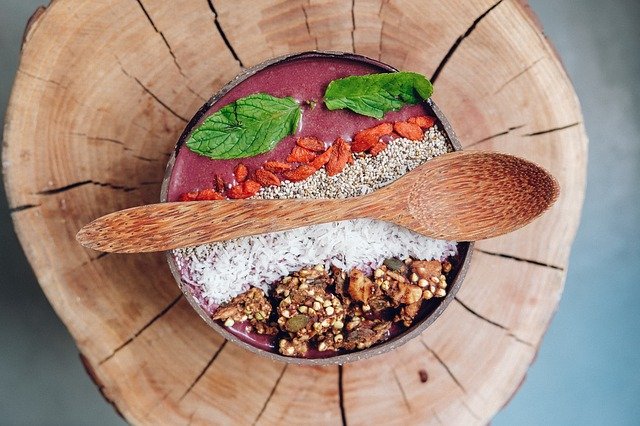If there’s one topic that everyone has been concerned about in the last year, it is how to improve immune system resistance. Your immunity is the ability of your body to fend off all forms of external threats such as microorganism and environmental toxins as well as all internal threats such as oxidants, autoimmune responses and abnormal cell growth. These are the main functions that your immune system carries out.
When your body is functioning optimally, you’re not thinking about how to increase immune system strength. It is only when you fall sick or catch a cold that you truly appreciate your immunity. The moment you get sick the immune system rallies to fight off the infection and restore your health.

You are exposed to millions of these threats and germs on a consistent basis and the immune system plays its part keeps you safe and healthy. Your task is knowing how to improve immune system and ensuring that you do all in your power to keep it functioning at its best.
NOTE: The tips covered in this article are not meant as replacements for protecting yourself from COVID-19. Please continue to wash your hands, wear masks and maintain social distancing rules as directed by the authorities. Strengthening your immunity does not guarantee that you will not contract the COVID-19 virus or any other virus. A stronger immune system means that it is easier for your body to deal with the attack, so you are less likely to have severe symptoms.
How to improve immune system strength – General habits
The body is a biological machine and just like any other machine, it requires regular upkeep and maintenance to ensure it works properly. If you maintain healthy habits, you should find your immune system working as intended. This means you will not fall ill as often.
When considering how to increase immune system resilience, the following healthy habits help:
- Maintaining a well-balanced diet
- Getting regular exercise and physical activity
- Getting enough sleep – an average of eight hours is recommended for adults
- Minimal consumption of stimulants such as nicotine and caffeine
- Natural therapies for health
- Taking time to relax
- Managing stress levels
When you work on how to improve immune system, these habits are an effective tool. It means that your immune system has to work less to keep you fit. A stronger and more resilient immune system makes you stronger and more resilient.

How to improve immune system – Exercise
Exercise boosts the immune system in the long run in addition to strengthening your heart, muscles, bones and the entire cardiovascular system. If you are new to exercising or beginning a regimen after an extended period, it is best to take it slow and consult your medical practitioner before you begin.
You can consider the following exercises when thinking about how to increase immune system:
- Yoga
- Brisk walking and jogging
- Strength and resistance training
- Tai-chi
- Swimming
- Rope skipping
- High-Intensity Interval Training (HIIT)
Most of them can be done within the confines of your home and require minimal to no equipment. But do be careful not to overexert yourself in the hopes of a quick fix. Overstraining yourself with exercise leaves your immune system weaker in the short run because energy is diverted to building fitness levels. Your exercise regime should be a long-term habit that you work on every day.

If you would like to consult a personal trainer to create a workout that is suited to your level of fitness, Avaana can help you find one.
How to improve immune system – Stress management
Research has shown that stress has a detrimental effect on the entire body as well as on the immune system. Stress is not limited to big triggers; it could also be physical stressors like illness or small regular stressors like waiting in traffic every day.
Each stressor takes a bite out of your immune system and leaves it vulnerable. It is imperative that you learn stress management so that you can have a better understanding of how to improve immune system resilience.
One way of this is to reduce the stressors in your life. For example, if traffic congestion stresses you on a regular basis, you might consider changing your commute timings or route to avoid it.
But you can’t always change your circumstances to avoid stress. In this case, you do not have to manage stress on an individual basis. When you practice stress management techniques on a regular basis, you make it easier for your mind and body to handle all kinds of stressors.
Consider the following stress management techniques:
- Exercise on a daily basis; even something as simple as a walk will suffice
- Spend time outdoors especially in the sunshine
- Adopt a pet or practice a hobby that relaxes you
- Practice breathing techniques
- Adapt mindfulness and meditate on a daily basis

How to improve immune system – Diet choices
Food is critical to the functioning of a robust immune system. The nutrients we absorb from our food help keep your body and immunity functioning as efficiently as possible.

A balanced diet consisting of whole foods, fruits and vegetables is sufficient for your health needs. Try obtaining the following nutrients which are indispensable to immune function:
- Complete amino acids
- Vitamins such as A, C and E
- Minerals such selenium and zinc
- Pro and prebiotics for a healthy gut
Find out more about eating for a stronger immune system in our blog post.
How to improve immune system – Good sleeping habits
The immune system is deeply interconnected with our sleep because a number of disease fighting mechanisms are activated or created as we sleep. Loss of sleep has the same physical effects on the body as experiencing intense physical stress. For sleep-deprived individuals and insomniacs, low immunity is a common complaint.

If you are working on how to improve immune system, cultivate good sleep habits by:
- Cutting out stimulants like caffeine and sugar
- Sleep in as much darkness as is possible
- Do not go to bed immediately after a heavy meal
- Get an average of eight hours of sleep every night
- Avoid all forms of blue light emitted from LED light, device screens and car lights for a few hours before sleeping
How to increase immune system – Superfoods and meal habits
A balanced diet including whole foods and a rainbow of colours can give you a robust immune system. But there are some shortcuts or special ingredients that give it a powerful boost:
- Consume berries for a huge influx of antioxidants
- Ensure you get enough vitamin D by spending some time in the sun
- Eat nuts for vitamin E
- Ditch the salt and add herbs to your cooking for a burst of flavour and health
- Add garlic to just about anything
- Consume seeds for a vegetarian source of iron and zinc
- Consume probiotics to cultivate healthy gut bacteria
- To strengthen your gut lining, eat foods with high vitamin A content
- Get vitamin C from citrus fruits
A good diet should include foods like fruits and veggies, whole grains, legumes, nuts and seeds, dark chocolate, and low-fat dairy. For those who eat non-vegetarian food, choose organic meat, fish, and eggs. You should always try to avoid highly processed foods that are overloaded with sugar to ensure that your immune system stays healthy.

If you would like to consult a nutritionist online about healthier food habits, Avaana can help you find one.
Boosting a weak immune system
If you’re searching for how to improve immune system because you know your immunity is weak, you must consider many factors.
Your immune system is determined not only by your lifestyle but also by the current state of your body. If the systems within your body are compromised in some way, it is harder for the immune system to fend off diseases and illnesses.
However for some people, there are certain medical or health conditions that can lower your immunity. If you have the following conditions, you are likely to have weakened immunity:
- Lung diseases or other cardiovascular problems
- Chronic low-grade illness
- Diabetes
- Heart conditions
- Subtle immunosuppression i.e. autoimmune conditions
- Concurrent infections
If you have any of the above conditions, talk to your doctor about strengthening your immunity.
Are some people more prone to immunity problems?
While some people end up with a weaker immune system as a result of lifestyle or food habits, there are some sections of the population that have naturally weaker immunity.
Senior citizens, babies and young children are immunocompromised because their immune systems are either not mature enough or have grown weak with age. For such individuals, it is vital that extra care is taken to protect them from exposure.

Some people may have medical conditions or autoimmune conditions that weaken the immunity. In this case, extra care should be taken to avoid exposure to toxins or microorganisms. In addition, there may be supplements that can be prescribed to help deal with weakened immunity.
Should I take supplements for immunity?
Vitamin C and zinc supplements have become very popular especially during the ongoing COVID-19 pandemic. It is not usually necessary to take any additional vitamin or mineral supplementation if you are a heathy individual without any specific concerns. Only those who have already been diagnosed and advised by their doctors or dietitians should be supplementing. This includes:
- Those with specific nutrient deficiencies
- Pregnant women
- Those with conditions like gut disorders that affect nutrient absorption rates
Can vaccination help?
A vaccine is a very minor dose of the pathogen that you want to immunize yourself against. This allows the immune system to learn how to fend off the infection easily. It also helps your body remember and recognize the actual pathogen if you are exposed to it again.
Vaccination is useful if you are trying to figure out how to increase the immune system against a specific pathogen.
Immunity is a long-term habit
Regardless of popular opinion, improving the immune system is not about popping large doses of vitamins and minerals. There is no quick-fix solution to ideal immunity. It takes a balanced diet and healthy lifestyles habits along with a dose of time and patience to ensure a robust immune system.



